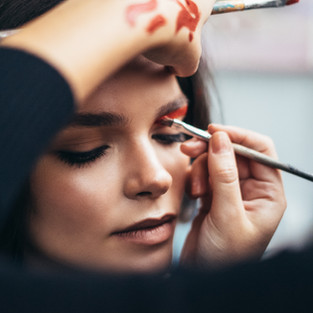
This month with my students and I will be zeroing in on Make and Do.
You know who you are. And YES! You DO need to keep reading.
YES. Even, YOU!
And, if you are not a student of mine, you really need to read this.
Why?
Because I have created a way of classifying make and do into 9 categories that make them easier to learn.
This time, I am going to organize them OCD (Obsessive Compulsive Disorder) style, that is, in alphabetical then numerical order.
As d comes before m let’s start with DO.
DO

1. GOOD AND BAD
This category is not about classifying the verb do in terms of good and bad things that happen in life, but more about using the words good and bad and any words that derive from them, like well, worse, badly, better, best, a good or bad job and stretching it by including damage.
If you are in hospital and you are responding to treatment your doctors will say that you are doing well or at least doing better than you were when you were admitted. If we say that somebody does well in different situations, we mean that they perform successfully. Your child might do well in an English exam or your sister might have done well in her driving test and passed it the first time.
By doing a good deed you complete an action that is very positive or helpful to others. Maybe you help an old person to cross a busy street or help them carry their shopping home.
· I did really badly the first time I did my driving test, but the second time I did better.
· She did well in the speaking exam but she did a bad job in the written exam.

2. HOUSEHOLD TASKS
At number 2, and second, in alphabetical order, we have household tasks, which are normally completed with the verb do. Think about all the most boring jobs you have to do at the weekend and get ready to use the verb to do a lot.
When you wash your clothes, you are doing the washing. When you wash dirty dishes, you are doing the dishes or doing the washing up. Normally, in families, one person does the dishes after another person does the cooking, but if you live alone, you have to do everything. You have to do all the tidying up: you do the vacuuming and if you are very house proud, you might do the dusting. You also do the shopping, be that at the supermarket or online. The one thing you don’t “do” is make the beds.
· The thing I hate most about housework is doing the dusting.
· When I get my dishwasher, I won’t have to do the dishes by hand anymore.
· I do the shopping online now.

3. SCHOOL AND STUDY
We are on to our third category of activities where we use to do, and the magic letter is S. S for School & S for Study. If you do any kind of course, degree, master's or even a doctorate (if you are very brainy), you will probably need to do homework or research. It comes with the territory. Incidentally, homework and research are uncountable nouns in English, so we don't say homeoworks or a research.
NEVER. Ever.
If you are having difficulties with your chosen field of study, you might decide to hire a private teacher to help you, in other words, you do private classes or grinds as they are popularly known in Ireland. You will often hear Irish students saying “I have to do my Maths grinds tonight.”
· After I did my degree, I took some time off to some courses, before I went back to university to do a Master's.
· It takes my kids about 45 minutes to do their homework.
4. SELF-IMPROVEMENT
Self-improvement is the fourth and last category where we use the verb to do.
Last, but not least.
We all want to present the best possible image of ourselves, so for that reason we often take hours to do our hair, nails, and make-up, even if guys do it in secret!!!!
Improving our physical strength and appearance might even lead us to do aerobics, Zumba, weight-lifting, pilates, or yoga.
Or it might be better just to stick to a hair-dryer and a little lippy. (lipstick!)
· I really need to do my hair. I haven’t been to the barber for 2 months and I look like a Yeti.
· I like to do aerobics and yoga in my free time.
MAKE

5. COMMUNICATION
Here we are with our first category of make verbs – communication, for all those times we need to convey information. We can do this by making calls, making comments, making statements, making speeches, or making presentations. In all of these communications, we make points and if the points we make are in any way controversial, we can be said to make a splash or make waves.
What does that mean - to make a splash or make waves?
If you make a splash, it means that you attract attention or get noticed. If you scream and make a lot of noise, then you will definitely make a splash and also inadvertently, make waves, which is to create a significant impression.
· My brother, who is a local politician is used to making speeches and statements.
· Let me make a quick call, and I will let you know!
· He made some good points but he didn’t convince me.

6. FOOD AND DRINK
I hope that you are not feeling peckish at the moment, i.e. hungry, because we are going to talk about stuff you make and put in your mouth. Yes, I hope that is food. Or drink.
We use make with types of food like cake or pizza, drinks like coffee or cocktails or indeed the names of meals, which are always used without an article – so we make breakfast (in the morning), brunch (around mid-morning at the weekend), lunch (around mid-day), dinner (in the early evening) and then supper or tea as a late-night snack. Wow, we´ll be making food all day long.
As if we were Gordon Ramsay. Or Karlos Arguiñano.
· When I make lunch, I normally make soup and a salad.
· Before I go out, I usually make a few cocktails, to get the party started.
· How long did it take you to make breakfast?

7. LOVE AND FRIENDSHIP
Love makes the world go-'round, according to the popular song… and to make is the all-important verb when it comes to relationships. When we establish friendships, we make friends and when friendships sour, we may end up making enemies. If we are capable of putting our differences aside and restoring a friendship, we make peace. When we do that, we can say that we are making up. This can happen between individuals or between whole countries. During the Vietnam War, Make Love, not War was a popular anti-war slogan and six decades later, it still rings true.
· When I moved to Madrid, I discovered it was very easy to make friends.
· I wonder if Israel and Lebanon will ever make peace.

8. MONEY
In 1976, the Swedish supergroup Abba released Money, Money, Money and in the process, they made a lot of money. A LOT!!!
If you sell an item for a lot more money than you originally paid to obtain it, or if quite simply you come out of a situation with more than you had when you started, then we say that you have made a profit. (Conversely, if you sell something and you make less than you originally paid, you make a loss). While a lot of small companies are making losses as a result of the ongoing Covid-19 pandemic, online retailers like Amazon and Alibaba have made huge profits. In fact, some would say that thanks to the restrictions on physical shopping, they have a made a killing, i.e., they have made a large and quick profit. How people earn money is also described with the verb to make because amongst other ways to say how we generate the money we use to live, we say to make a living. I make my living as a teacher and writer. Others make their living as football players, shop assistants, or engineers.
· My uncle made all his money on the stock exchange.
· Companies selling face masks and hand gel are making a lot of profit.
· My brother made a killing when he sold his apartment in the city-centre for a lot more than he paid for it.

9. PLANS AND PROGRESS
Our final category deals with how we organize ourselves and how we evaluate how well we are doing. You see, we make plans and if we make really great plans, we should make progress. When things don’t turn out exactly as we had planned, we might have to make changes but before we make any changes or amendments to anything… we will have to make some decisions.
· I hate making decisions. I never know what to do.
· I wasn’t doing well last year, but since starting on my new medication, I’m making progress.
So, let´s summarise it all in few sentences.
We have two verbs, make and do, which, for a lot of language learners essentially are the same.
But to native speakers, they are not.
We often use to do in the same way we might use to complete. We use to make in the more practical sense of fabricating or constructing something.
I have divided the most common verbs into nine categories, four for do and five for make.

TO DO
Good and Bad
Household Tasks
School and Study
Self-improvement
TO MAKE
Communication
Plans and Progress
Love and Friendship
Money
Plans and Progress
Record them in a notebook and divide them up into the nine categories and then, practise, practise, practise.









Comments